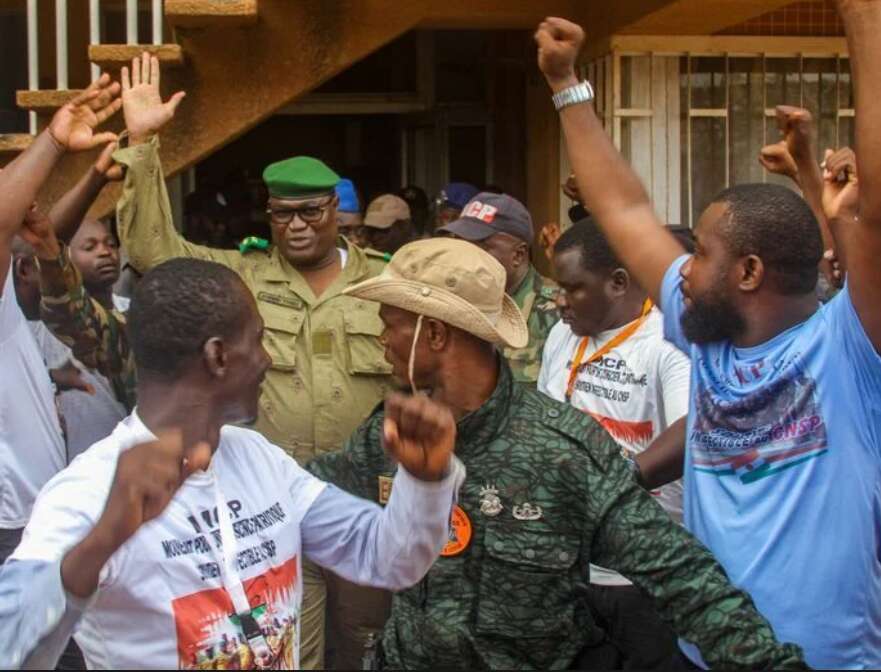Niger Shuts Down Airspace Indefinitely as West African Bloc Threatens Military Intervention over Ousted President
Niger closes airspace over fears of military intervention after coup leaders reject ultimatum to reinstate president. Escalating tensions in the Sahel region raise concerns of further conflict and insecurity.
Niger has closed its airspace indefinitely, citing the threat of military intervention from the West African regional bloc after coup leaders rejected a deadline to reinstate the country's ousted president, Mohamed Bazoum.
The Economic Community of West African States (ECOWAS) had given the generals until midnight on Sunday to hand over power, or face potential military action. In response to the ultimatum, the coup leaders announced that any attempt to violate Niger's airspace would be met with an "energetic and immediate response."
The coup, which took place on July 26, is the seventh in West and Central Africa in the past three years, and has sent shockwaves through the Sahel region, one of the poorest areas in the world.
Given Niger's reserves of uranium and oil, as well as its crucial role in the fight against Islamist militants, the country holds significant importance for the United States, Europe, China, and Russia. The Defence chiefs of ECOWAS have developed a potential military action plan, including specific details on when and where to strike if President Bazoum is not released and reinstated by the deadline.
In response to the looming threat of intervention, a representative from the junta announced on national television that Nigerien airspace would be closed, effective immediately. The representative also mentioned a pre-deployment of forces in two Central African countries in preparation for a potential intervention, although no specific details were provided.
In support of the junta, thousands of supporters gathered at a stadium in the capital, Niamey, praising the decision not to bow down to external pressure. Over 100 junta supporters established a picket near an airbase in Niamey to show non-violent resistance if necessary.
Many of the emotions expressed by the demonstrators seemed to be directed towards ECOWAS and France, the former colonial power, which had announced its support for regional efforts to overturn the coup.
The closure of Niger's airspace and the threat of military intervention have raised fears of further conflict in a region already plagued by a deadly Islamist insurgency that has resulted in countless casualties and forced millions to flee. The situation is further complicated by the promises of support from juntas in neighboring Mali and Burkina Faso, should Niger require assistance.
Despite the escalating tensions, Bazoum's prime minister stated in Paris on Saturday that the ousted regime still believes a last-minute agreement is possible for a peaceful resolution. In response to the rising insecurity, Italy has reduced its troop numbers in Niger to accommodate Italian civilians who may need protection.
Both the United States and France have facilitated evacuation flights for their nationals in light of the growing military threat in the region. As the deadline set by ECOWAS expires, it remains to be seen how the situation will unfold and what actions will be taken in response to the coup in Niger.




